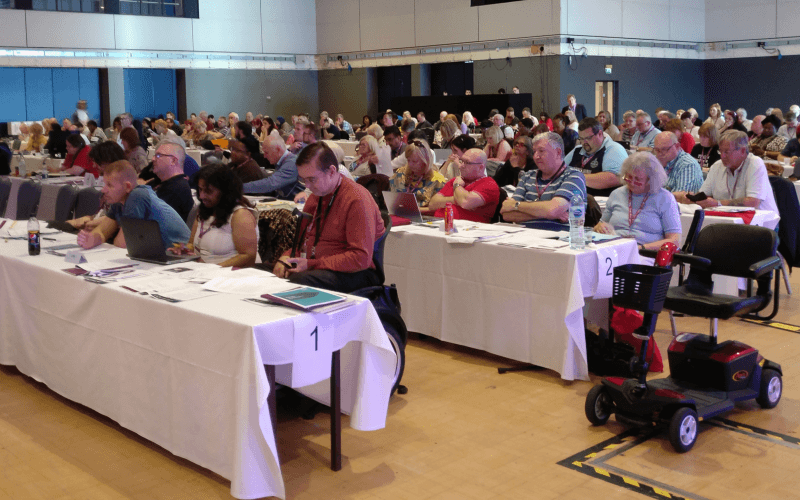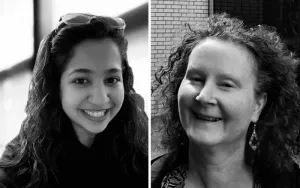Disabled trade unionists have called for urgent action to address the tragic inadequacies that have led to the deaths of scores of autistic and other disabled people in care settings.
This week’s annual TUC Disabled Workers’ Conference in Bournemouth backed an emergency motion that criticised the government for failing to act on flaws identified by investigations into the deaths.
It came as a new BBC Panorama documentary revealed alleged abuse at a private sector care facility for autistic people and people with learning difficulties, this time at Whorlton Hall, in County Durham.
The allegations have led to the launch of a police investigation and the suspension of 16 members of staff, as well as a CQC apology for its failure to spot the abuse.
This week’s motion, proposed by autistic rights campaigner Janine Booth, a member of the TUC disabled workers’ committee, focused on the death of Colette McCulloch, who was struck and killed by a lorry after wandering onto the A1 near Bedford in July 2016.
An inquest in March this year found there had been inadequacies in her care that contributed to her death, and that she had been failed by a lack of a mental health assessment and an inadequate regime of care, although no individual or organisation had been directly at fault.
She had been living in a residential care home near Bedford, after being placed there by Sussex Partnership NHS Trust, while requests for a Mental Health Act assessment had been rejected by the local joint mental health service.
The motion backed by the conference called on the TUC to demand government action to create “an adequately-funded, publicly-run, accountable and effective care service for those who need it”.
Booth also told this week’s conference about some of the many other autistic people who have died prematurely in care settings.
They included Connor Sparrowhawk, who was left unsupervised in a bath and had a seizure and drowned.
Elric Eiffert also drowned in a bath in a private mental health facility after a seizure, while his family were not told of his death for 17 days.
Stephanie Bincliffe, died in an assessment and treatment unit after staff allowed her weight to increase to 25 stone. She had spent years alone in a padded room and died from complications associated with her weight gain.
And Michael Bennett died while in the care of a disability charity. An inquest found there had been shortcomings in his care, although the care home itself was not at fault for his death.
Booth, an RMT delegate, said more than 40 autistic people and people with learning difficulties had died in secure hospitals in three years, nine of them under the age of 35.
She said: “They are all tragic cases, but they are not tragic in the sense of being unavoidable or accidental.
“They are entirely preventable and they are the product of the under-funding in the care system, the involvement of private companies which will always prioritise profit, and a system which still sees disabled people as a burden rather than as human beings with rights.”
She called for “justice for those people we have lost and an end to the under-funding, the privatisation and the reactionary attitudes that left unchallenged will cause this to happen again”.
Austin Harney, the first autistic member of the national executive of the PCS union, told delegates that the Colette McCulloch case showed that “we do live in an institutionalised, prejudiced society towards autistic and neurodivergent people”, which he said was “outrageous”.
A note from the editor:
Please consider making a voluntary financial contribution to support the work of DNS and allow it to continue producing independent, carefully-researched news stories that focus on the lives and rights of disabled people and their user-led organisations.
Please do not contribute if you cannot afford to do so, and please note that DNS is not a charity. It is run and owned by disabled journalist John Pring and has been from its launch in April 2009.
Thank you for anything you can do to support the work of DNS…

 Call for volunteers to fill ‘massive gap’ in support for autistic survivors of sexual violence
Call for volunteers to fill ‘massive gap’ in support for autistic survivors of sexual violence The State of Care is ‘longer waits and reduced access’, says watchdog
The State of Care is ‘longer waits and reduced access’, says watchdog Union key workers demand urgent action on rights for those with long Covid
Union key workers demand urgent action on rights for those with long Covid